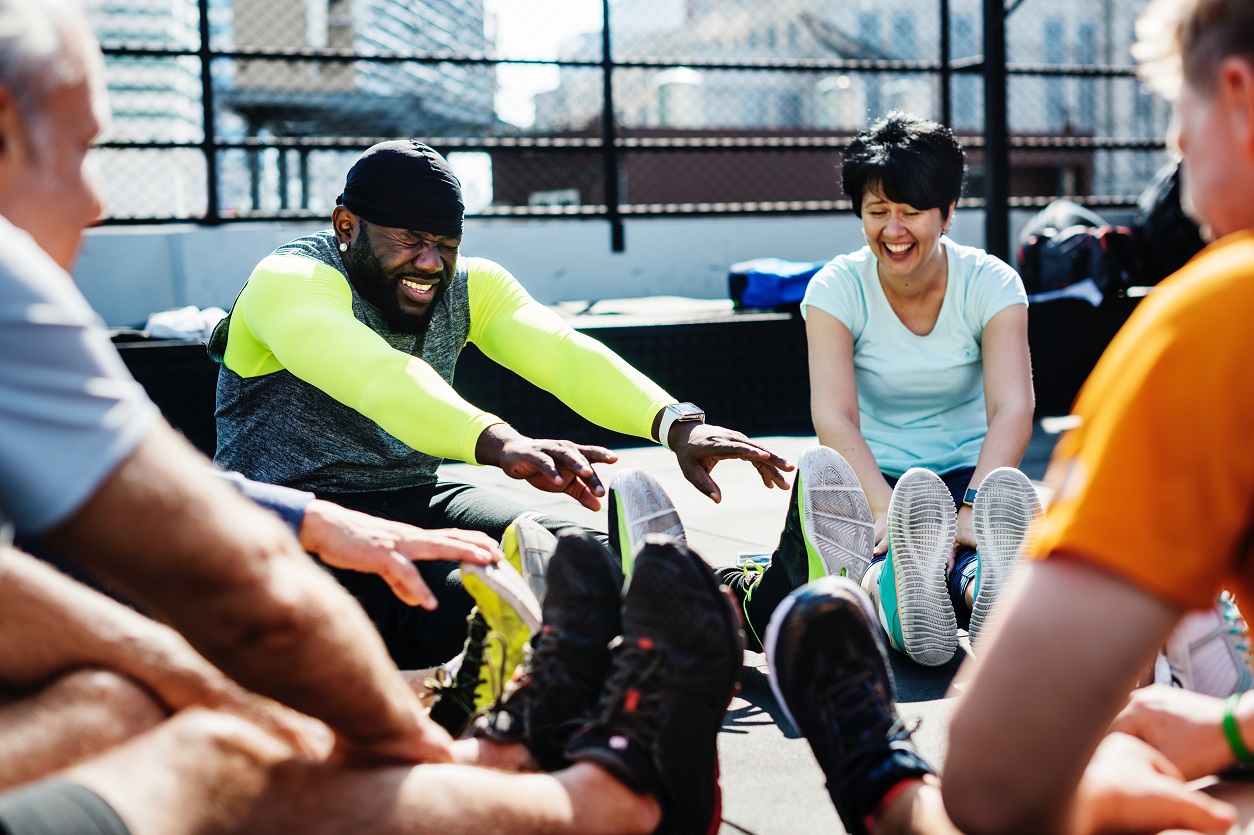Staying Healthy while Coping with Grief

Written By: Valery Bodziony, MS, University of Louisville
As of May 2022, more than 6.2 million people have died from COVID-19. Each death is a loved one or family member that was lost.
The weight of grief brought on by the pandemic is hard to fully process. The loss of lives, jobs, social interactions, and what we all knew as “normal” impacts us all. With so much grief circling the globe, it’s important to understand the physical health effects of coping with grief.
Creating a Healthy Grieving Process
Grief can cause both emotional and physical reactions that can affect our health. The grieving process brings about moments of intense suffering and it may be difficult to continue daily routines, including engaging in healthy behaviors.
Research has shown that grief is related to decreased physical health. Grieving individuals see the doctor more frequently and report more symptoms of illness than others. Prolonged grief can lead to the development of complicated grief. This is an unhealthy form of grief so serious and ongoing that someone feels unable to move on.
Grief and bereavement may also be associated with poorer sleep quality, increased weight gain, physical inactivity, and unhealthy eating behaviors.
Actively engaging in positive health behaviors can help counter these effects. Emotional support and other interventions are very important to healthy grieving. Research suggests that physical activity, good sleep, and eating a healthy diet may be just as important.
Here are some tips that may help to facilitate the grieving process and improve your overall well-being.
Get active.
Physical activity may help to cope with grief. Regular exercise can improve mood, provide enjoyment, and increase opportunities for social interaction. All of these can be beneficial during the grieving process.
In a recent study, people who were physically active before their loss had an easier time navigating the grieving process. This suggests that physical activity may prevent poor mental and physical health outcomes following a loss. This activity does not have to be strenuous. The key is to get your body moving however you can.
Go on a walk.
Physical activity can be as simple as going for a short walk. Walking has shown to have many physical and mental health benefits.
This is also true during the grieving process. In fact, a 40-minute walk in nature has been shown to significantly decrease stress. If possible, you may try going on a walk with a friend or family member. Walking with another person has been shown to have even more positive health benefits.
Get good sleep, and enough of it!
People in bereavement are at greater risk of developing sleep difficulties. These include poor sleep quality, problems falling and staying asleep, shorter sleep duration, and anxious nighttime awakenings.
The National Sleep Foundation recommends getting at least 7-8 hours of sleep per night. Creating a regular sleep schedule and routine is important while coping with grief.
Eat a healthy diet.
Grief is often linked to unhealthy eating. A grieving person may be more likely to skip meals, eat alone, find preparing meals difficult, or eat a poorly balanced diet.
Try to incorporate fruits and vegetables in your meals. When possible, eat with friends and family or learn to prepare new meals. You can also try eating several small meals throughout the day to keep yourself well-nourished throughout the grieving process.
Other Resources for Coping with Grief
Getting active, getting good sleep, and eating healthy are not the only ways to promote a healthy grieving process. If you have suffered a loss and feel you may be grieving, please explore the following resources. Your medical provider can also help you find methods of coping with the health effects of grief.
This article is dedicated to my maternal grandfather (1923-2021), as well as my paternal grandmother (1939-2021), survived by my grandfather, Dennis Bodziony, Sr.
More Articles

5 Tips for Healthier Grocery Shopping
These tips will help you stay focused, improve your grocery shopping, and leave the foods you want to avoid at the store so you don’t have to resist them at home.

Insomnia in Older Adults: Tips to Master Sleep as We Age
How we sleep and how we can sleep better changes as we age. Check out these tips for older adults with poor sleep or insomnia.


